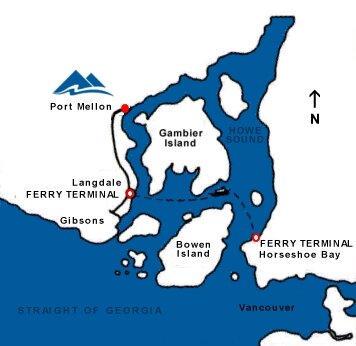These are the words of evolutionary biologist Richard Dawkins in a book he wrote in the mid-1980s The Blind Watchmaker: Why the evidence of evolution reveals a universe without design:
For different purposes we find it convenient to use words in different senses. Most cook books class lobsters as fish. Zoologists can become quite apoplectic about this, pointing out that lobsters with greater justice could call humans fish, since fish are far closer kin to humans than they are to lobsters…
And thus, fair enough… we conveniently use different words for different purposes. Yet, maybe we should be cautious about just how ‘convenient’ that use becomes…
From the :
Major forestry companies as represented by the Forest Products Association of Canada (FPAC) working in the Boreal region of Canada have come to a historic agreement with nine leading environmental organizations, setting down collective wording on joint activity regarding the future of the Boreal Forest in Canada
However in this cookbook — or “roadmap” — that has been drafted into the Canadian Boreal Forest Agreement (or prevalent in the Wild Salmon Policy for example, or all of the Provincial efforts I highlighted in my last regarding the latest trend in: “ecosystem-based management” ; more akin to polishing turds…).
Everyone’s doin’ it… it must be good…
Unfortunately, “ecosystem-based management” is the proverbial bandwagon. Everyone’s on it and has the t-shirt to prove it – even Gordon Campbell, and Arnie, and “Steve” Harper. I’ve got the design picked out… it’s the tag line from the Vancouver Olympics “Believe“… but it will be on a green toque… made of eco-certified (third party verified), shade grown (fourth party certified), fairly-treated sheep (sheep audited), fairly traded Shetland wool (Scottish certified).
See… I received an email today from another enviro group involved in the signing of the Boreal Forest Agreement (a group that has generally always operated strongly at the margin).
They don’t agree with my analysis — fair enough (folks often don’t agree with me…for example “no, Dad, it’s not bed time…I’m not tired.”)
Unfortunately, the message reeks of corporate spin doctoring, cut-and-paste, rinse-and-repeat if necessary…and…well… “believe” (or, we know best):
The CBFA establishes a process for resolving the conflicts between nine environmental organizations and FPAC and its member companies, as well as a roadmap to shared goals.
These goals include a network of protected areas throughout the Boreal Forest; the recovery of species at risk, including woodland caribou; and development and enforcement of improved forestry practices at a standard of the Forest Stewardship Council or higher.
The cynical elf on my shoulder asks: if logging companies were so concerned about building a network of protected areas, recovering species at risk, and developing better forestry practices… why didn’t they just do it themselves? They have the tenures to those areas… and the simple ability to work all of those “goals” into their forest development plans…
Well… because the part that isn’t mentioned in the enviro-spin-doctoring is what the industry is really after: consistent fibre supply, without those nagging “market campaigns”.
_ _ _ _ _ _
And unfortunately, this “roadmap” (or cookbook) of “collective wording” (suggesting “wording” by committee — and we all know how well that goes…) has decided to sell “ecosystem-based management” as expensive lobster, listed in the fish section of the cookbook. Yet, the lobster is probably closer to a caribou, then it is to a fish… (fish being closer to us, then lobster…). And this goes back to ‘convenient wording’.
_ _ _ _ _
This also harkens back to the email I highlighted the other day that suggested that another particular enviro organization PR-rep had full faith in the “science underpinning the Agreement”.
Sadly, the science “underpinning” ecosystem-based management is about as clear as using a cookbook to perform biological classification, or a roadmap to understand caribou migrations.
_ _ _ _ _
If you had a chance to read posts last week, you may remember my quotes from George Orwell’s 1946 essay Politics and the English Language, for example:
Adjectives like epoch-making, epic, historic, unforgettable, triumphant, … are used to dignify the sordid process of international politics…
I would add in the term “world-leading” to Orwell’s list –as I’ve come across it a couple of times in just the past week, Enbridge Pipelines propaganda that landed in my Prince George mailbox, and from the “abridged” version of the Agreement on the CBFA website (original still isn’t posted):
Goal 1.
World-leading Boreal “on-the-ground” sustainable forest management practices based on the principles of ecosystem-based management, active adaptive management, and third-party verification.
If that’s the case folks… then how do you reconcile “world-leading” principles of ecosystem-based management with, for example, adopted in 2008, which gave rights to nature — the only one of its kind in the world… otherwise known as “world-leading”?:
Chapter: Rights for Nature
Article 1. Nature or Pachamama, where life is reproduced and exists, has the right to exist, persist, maintain and regenerate its vital cycles, structure, functions and its processes in evolution.
Every person, people, community or nationality, will be able to demand the recognition of rights for nature before public institutions.
_ _ _ _ _
Spin-doctoring can be hard work… however, it’s even harder to say what you mean, and mean what you say. As… words truly are our servants, not our masters. Lobsters are not a fish… and ecosystem-based management is not a “science”, and certainly not world-leading anymore, it’s as prevalent as… well… the term: “world-leading”







